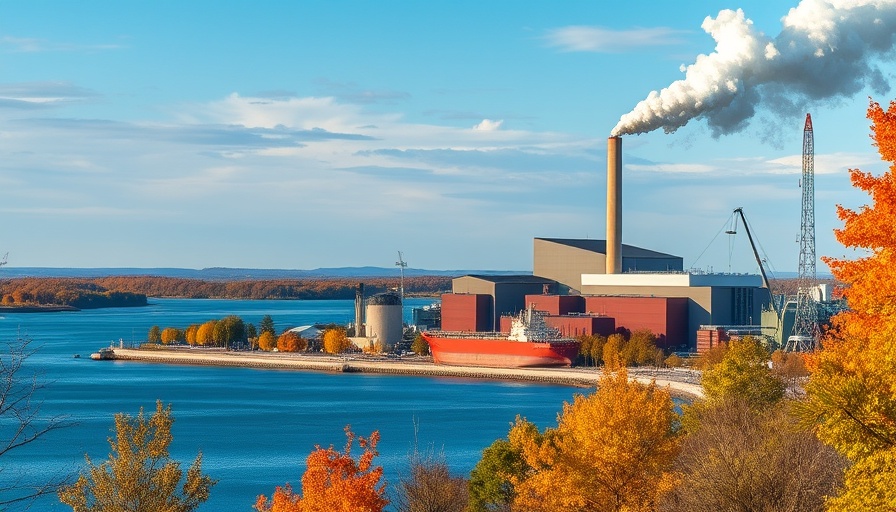
Liquid Wind Secures Major Funding to Boost eFuel Initiatives
Liquid Wind, a Gothenburg-based energy innovator, has made a significant leap forward in the European eFuel landscape by securing €3.6 million through the Swedish Energy Agency's Industriklivet programme. This funding will facilitate the pre-engineering phase for what is anticipated to be one of the largest eMethanol production plants in Europe, located in Örnsköldsvik, Sweden. The grant aligns with both national and EU goals aimed at reducing emissions and promoting clean energy.
A Pioneering Step Towards Carbon-Neutral Fuels
As the demand for sustainable fuels intensifies across industries, the backing from the Industriklivet programme signals a robust commitment from the Swedish government. It not only accelerates existing projects but also encourages deeper engagements with investors and stakeholders striving for carbon-neutral alternatives. According to Claes Fredriksson, CEO of Liquid Wind, this funding represents an endorsement of their vision to scale eFuel solutions that will significantly reduce greenhouse gas emissions across hard-to-decarbonize sectors like shipping and aviation.
Part of a Broader Clean Energy Movement
Liquid Wind's progress is not an isolated case but part of a broader movement across Europe. Other companies are similarly advancing their clean fuel projects, such as Tulum Energy in Italy and Spain's Green Bunkers, reflecting the continent's unified push toward sustainable energy solutions. By integrating renewable energy sources into their operations, these companies aim to foster a cleaner environment while reducing reliance on fossil fuels.
Collaborative Innovations for Sustainable Energy
Liquid Wind's collaboration with Övik Energi—an established regional utility—illustrates the power of partnerships in achieving sustainable energy goals. This joint venture will facilitate the use of both green hydrogen, produced from renewable electricity, and biogenic CO₂, establishing a circular energy system aimed at minimizing resource waste and ensuring sustainability. Once operational, the Örnsköldsvik facility could potentially eliminate around 200,000 tonnes of CO₂e annually, demonstrating a practical commitment to combating climate change.
The Future of Green Methanol Markets
Looking forward, the forecast for the green methanol market is promising, with projections indicating substantial growth from €3–5 billion in 2025 to €20 billion by 2030. This anticipated increase highlights the pressing need for efficient and scalable solutions in the energy sector. As the European Union strengthens its climate goals through initiatives like the European Green Deal, projects such as Liquid Wind’s present essential pathways for sustainable industrial practices.
In conclusion, investment in projects like Liquid Wind's eMethanol facility not only aids in achieving individual company goals but contributes significantly to the global momentum towards renewable energy. Financial institutions and investors are encouraged to align with these transformational opportunities in sustainability.
 Add Row
Add Row  Add
Add 




Write A Comment